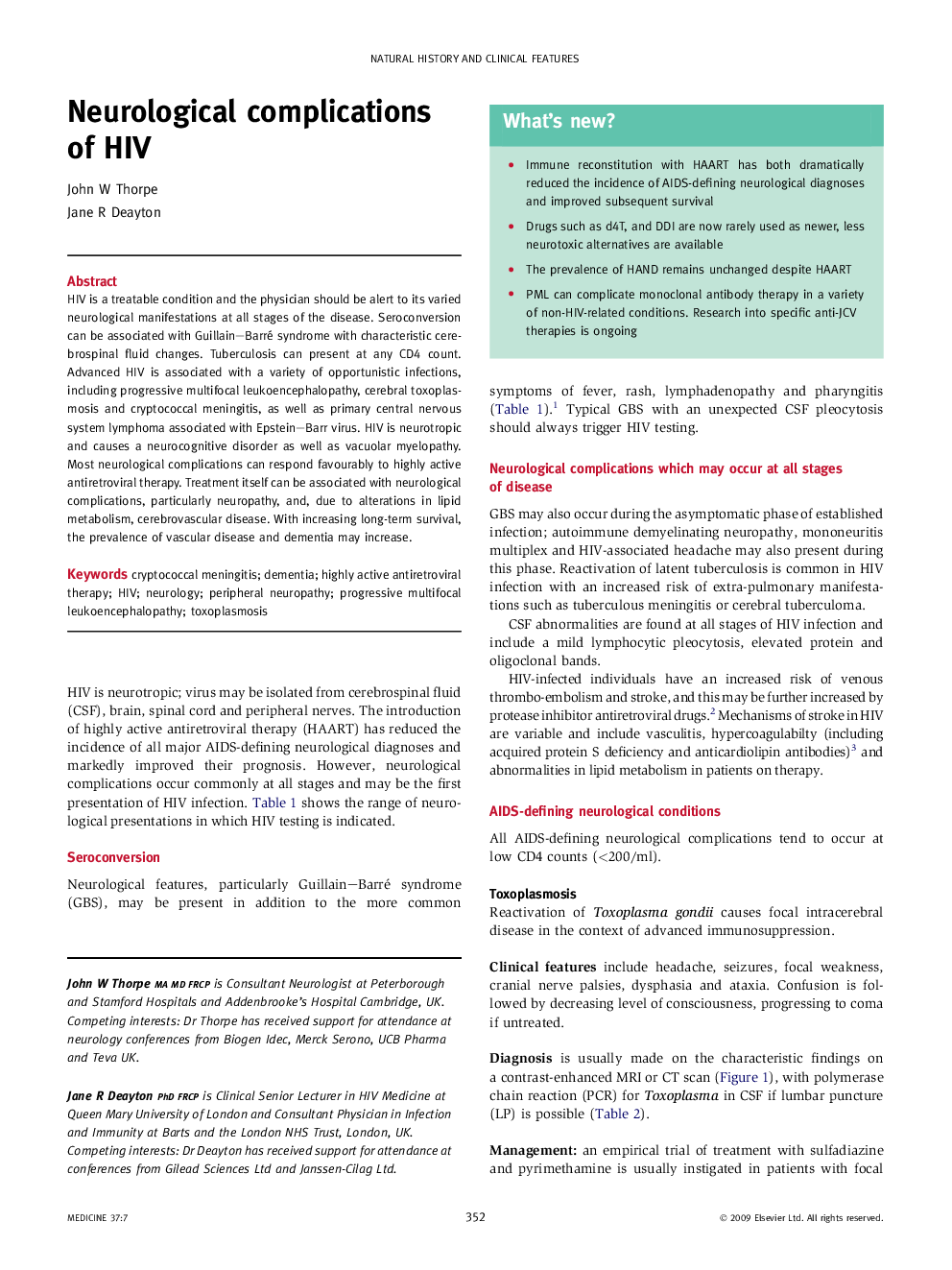| Article ID | Journal | Published Year | Pages | File Type |
|---|---|---|---|---|
| 3805371 | Medicine | 2009 | 5 Pages |
HIV is a treatable condition and the physician should be alert to its varied neurological manifestations at all stages of the disease. Seroconversion can be associated with Guillain–Barré syndrome with characteristic cerebrospinal fluid changes. Tuberculosis can present at any CD4 count. Advanced HIV is associated with a variety of opportunistic infections, including progressive multifocal leukoencephalopathy, cerebral toxoplasmosis and cryptococcal meningitis, as well as primary central nervous system lymphoma associated with Epstein–Barr virus. HIV is neurotropic and causes a neurocognitive disorder as well as vacuolar myelopathy. Most neurological complications can respond favourably to highly active antiretroviral therapy. Treatment itself can be associated with neurological complications, particularly neuropathy, and, due to alterations in lipid metabolism, cerebrovascular disease. With increasing long-term survival, the prevalence of vascular disease and dementia may increase.
